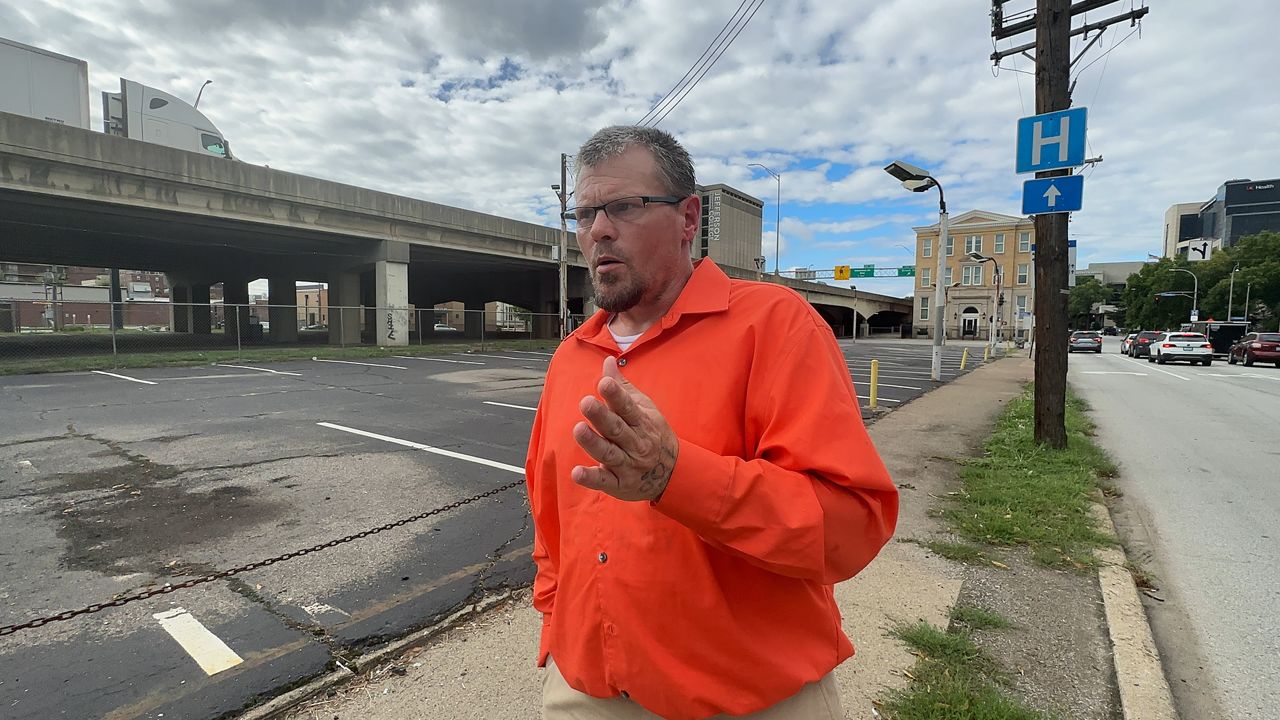LOUISVILLE, Ky. — Community organizations in Louisville are advocating for ways to distribute Opioid Settlement funds.
Kentucky’s Opioid Settlement money totals more than $842 million. Nationwide, $50 billion is at stake to distribute.
“These [pieces of plywood] are covering up our new space,” said Jennifer Twyman, an organizer with VOCAL-KY who’s showing the work in the organization’s expansion. “Our new space is just a way for us to better, like layout that roadmap in terms of getting input from directly impacted people.”
The Kentucky VOCAL chapter now has joined a list of over 130 organizations. These organizations represent advocates and experts from public health, overdose prevention and drug policy across the nation. This month, they’ve released a roadmap on how states should spend $50 billion in Opioid Settlement funds.
“I think that is, in my work and in my lived experience, I know that people that use substances and that are struggling don’t really have a voice about what happens in their life and we at Vocal want to change that.”
The organization is calling on Louisville to prioritize funding for harm reduction programs and an end to the war on drugs.
They’d like to see three policies be invested in to reduce overdoses:
- Fund all forms of FDA-approved medications for addiction treatment
- Expand housing, outreach and support services for people who use drugs
- Address issues like supporting second-chance employment and recovery-to-work programs along with expunging past convictions
It’s something Ronnie Morris is passionate about, having turned his life around. He said when you live on the streets, you deal with all elements.
“I lived under all of these viaducts, but living under a bridge. And being homeless, it’s nothing like camping, it’s nothing like living in your car,” Morris said.

Walking on the Brook Street sidewalk, Morris reflects on his time battling addiction.
“It started a long time ago when I was on pills and then it changed because the doctors was prescribing everybody medicine,” Morris said. “And then when the doctors stopped prescribing the medicine, I had to turn to something, and heroin was the cheapest thing to turn to.”
He’s transformed his life.
“I actually am on Suboxone, which is buprenorphine, and my whole life has changed. Sept. 9 is actually my one-year that I’m celebrating sobriety,” Morris said.
He said it was difficult, but the birth of his daughter motivated him to face his dependency head-on.
“And my little girl… she was the biggest influence because I couldn’t stand for my partner to say, ‘Hey, look, don’t get mad at us if we leave because you still using,’” Morris said.
He draws from his deep experience and calls for more resources.
“We need more shelters ran by more who have dealt with this issue,” Morris said. “Because let me tell you something: All it takes is for everybody who’s in the working class. It takes one slip-up. You can be right out here with us, you know? So just remember that. I’ve came a long way and I still am not never going to be up until everybody around me is up.”



